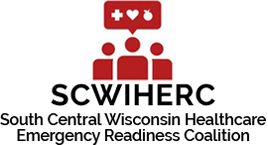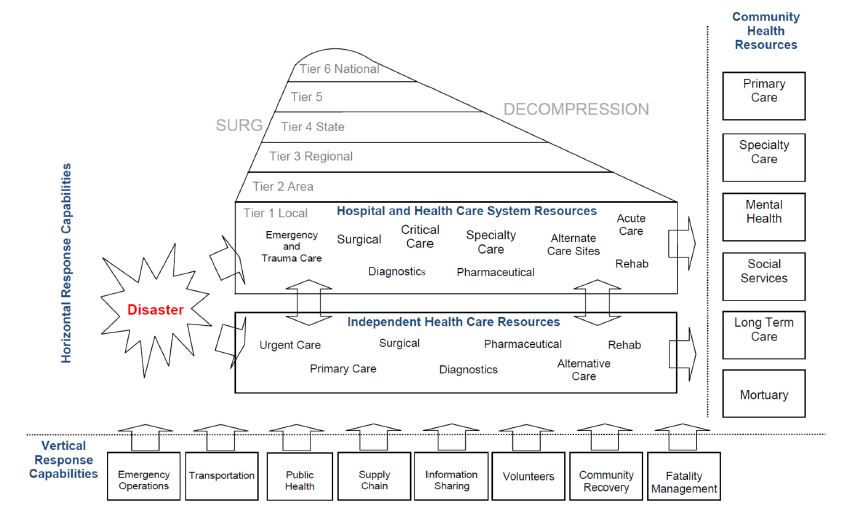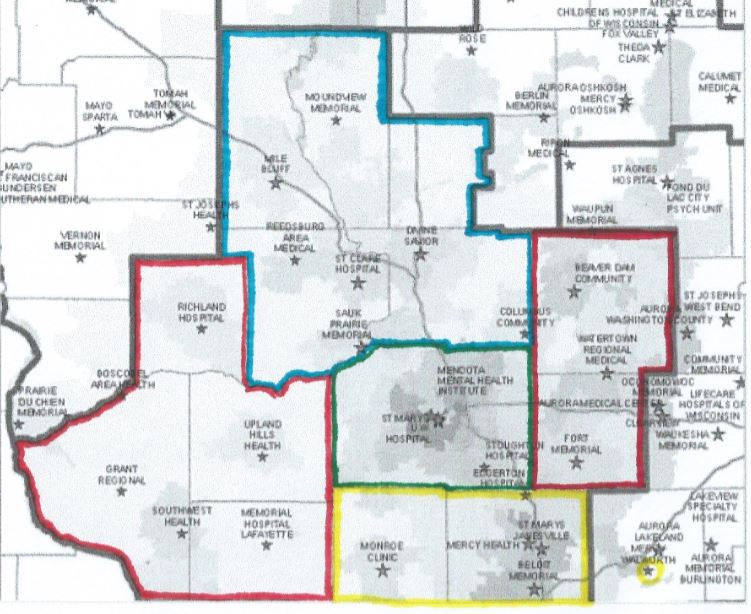Meeting slides:
Feb 1 19 Meeting Slides
February 1 Meeting Notes
See attached slides
Hospital
Reminders- Match survey link for all hospital centric exercises and real events
WISCOM- The February Roll Call will also include the redundant communications drill (WI Trac alert tells you when roll call is scheduled). The SIMCOM exercise is in May this year and May Roll Call will be part of that exercise.
Jennifer went over the upcoming coalition surge test and the expectations of all hospitals in the coalition. Exercise is no notice, but occurs between February 25 and March 8. After Action Review is March 5, please plan to attend. See separate CST planning notes in January 24 email from Jennifer.
Jennifer will be reaching out to hospitals seeking their level of desired participation in and expectations for SCWIHERC MCI Surge Exercise.
Based on meeting survey, we will continue hospital discipline meeting, with critical access hospital topics on hospital agenda.
Membership
HVA survey went out in email from Jennifer February 1. Please complete by March 1.
Coalition Surge Test briefing for membership. Partners may reach out in search of resources during exercise according to their plans. Injects have been written into exercise to engage public health and emergency management from counties that house evacuating facilities. Whole coalition will see alerts and updates via WI Trac and email.
Doug Hill, DHS Crisis Standards of Care project manager, gave an overview of crisis standards of care and let a discussion about it, see slides. Please reach out to Doug if you would like to be part of the CSC workgroup. This will be a complex, multi-year project.
We reviewed the meeting survey results, a summary of which can be found here:
https://www.surveymonkey.com/stories/SM-RV6Y9YG8/
Starting with the new grant year (after July 1), we will hold membership meetings quarterly and combine them with exercises/training opportunities/speakers when possible. We will also hold discipline specific meetings: hospital, public health, CMS partners. We will facilitate additional workgroups open to all interested parties:
-pandemics, public health emergency preparedness grant deliverables (combined with public health discipline meeting)
-vulnerable populations
-evacuation
-surge
-patient tracking (facilitated by Jennifer as state patient tracking co-coordinator)
-crisis standards of care (facilitated by Doug Hill)
We will also reevaluate other workgroups in the future
-mental health- provide offerings to engage mental health providers
-pediatrics (possibly statewide group instead of regional)
-family assistance center
-critical transportation
Recent conferences were reviewed. Highlights:
Regional Disaster Health Response System:
https://www.phe.gov/Preparedness/planning/RDHRS/Pages/default.aspx
Alison presented the High Consequence Infectious Disease Toolbox:
http://www.health.state.mn.us/divs/idepc/dtopics/hcid/
and the Travel Clinical Assistant:
https://dph.georgia.gov/TravelClinicalAssistant
Patty talked about the Association of Healthcare Emergency Preparedness Professionals (AHEPP) conference. She shared some presentations which are uploaded in the SCWIHERC Google Drive.
Finally, we shared lessons learned from the past few months, focusing on flooding recovery and the recent extreme cold weather.
February 1 Meeting Attendance (H) Indicates Hospital Meeting Attendance
Patty Walgenbach, Waupun Memorial (H)
Tina Strandlie, Stoughton Hospital (H)
Dave Larson, Madison VA (H)
Lynda Brereton, St. Mary’s Madison (H)
Heather Poker, St. Mary’s Madison (H)
Austine Duru, St. Mary’s Madison
Karen Munt, UPH Meriter (H)
Karen Sell, Columbus Community Hospital (H)
Marla Noordhof, Beaver Dam Community Hospital (H)
Sharon Foley, Divine Savior Healthcare (H)
Sam LaMuro, Fort Healthcare (H)
Gail Hanlon, Sauk Prairie Healthcare (H)
Kristy Tremelling, Sauk Prairie Healthcare (H)
Doug Hill, DHS CSC Project Manager (H)
Kyle Schaefer, UW Health (H)
Michael Stephens, UW Health (H)
Casey Farnum, UW Health (H)
Steve Haskell, UW Health (H)
Tom Ellison, UW Health
Jennifer Justus, Mercyhealth Walworth (H)
Carrie Meier, Dane County EM
Gail Scott, Jefferson Co PH
Donna Haugom, Jefferson Co EM
Jon Erdmann, Divine Savior Healthcare (H)
Kathy Johnson, Columbia Co EM
Jane Gervais, Adams Co EM
Sue Matye, Iowa Co PH
Cassidy Walsh, Sauk Co PH
Jessi Phalen, Sauk Co PH
Jim Acker, Watertown FD
Dan Michaels, PH Madison Dane Co
Alison Chouinard, Rock Co PH
Carol Quest, Watertown PH
Mary Crowley, Juneau Co PH
Thera Hawkin, Juneau Co PH
Joe Meagher, Dodge Co EM
RoAnn Warden, Green Co EM
Jeff Kindrai, Grant Co PH
Susan Lorenz, Columbia Co PH
Sarah Mattes, PH Madison Dane Co
Aurielle Smith, WI DHS
Brian Allen- Southwest Health (H)
Alice Salli- Mendota Mental Health (H)
Brian Cushman- Upland Hills Health (H)
Josh Kowalke- Reedsburg Area Ambulance Service
Allison Davey- Marquette Co PH
Bill Ritzer, Reedsburg AMC (H)
Bob Swenarski, St. Mary’s Janesville (H)
Brenda Koehler Borchardt- Watertown RMC (H)
Stephanie Alami- Central Wisconsin Center (H)
Brittany Rasmussen- Dodge County PH
Wendi Stitzer- Gundersen Boscobel (H)
Tanna McKeon- Grant County EM
Sean Marquis- Mercyhealth Janesville (H)




